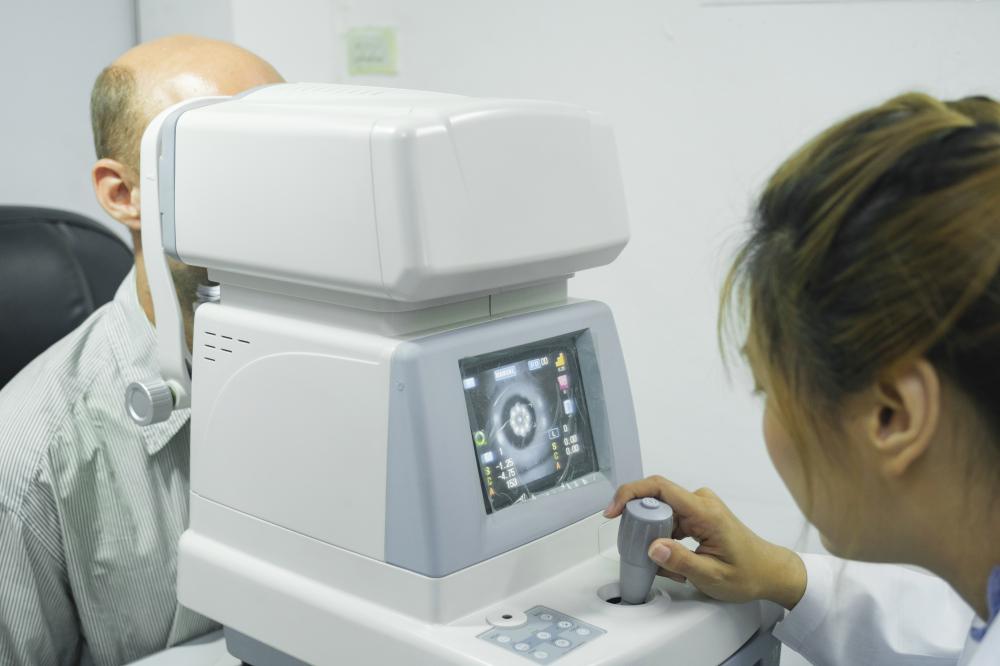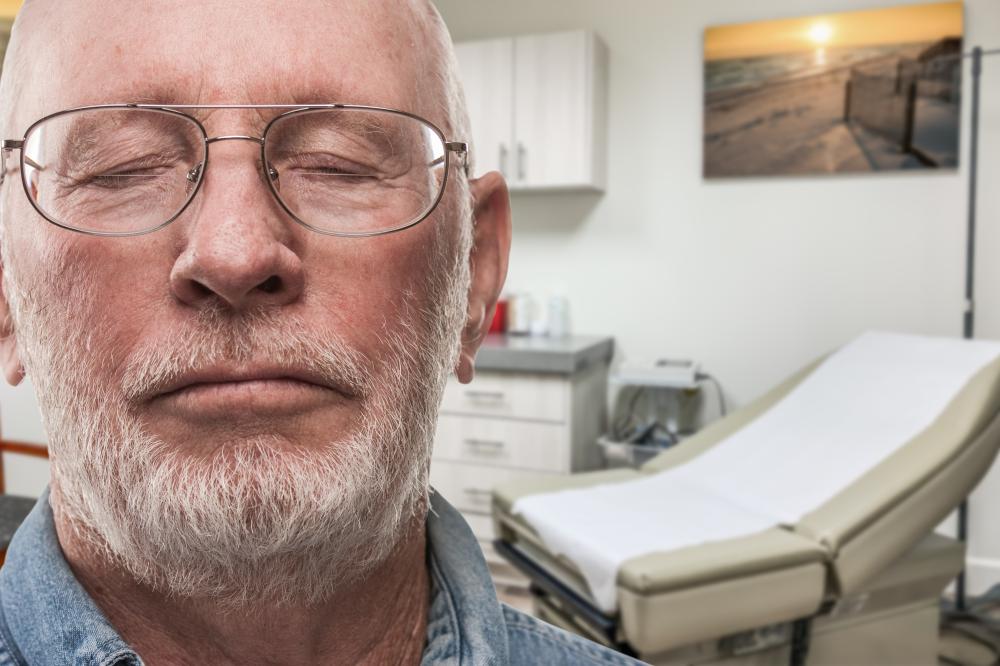Bradenton Glaucoma

Understanding Bradenton Glaucoma
At Coastal Eye Institute, we have encountered numerous patients concerned about glaucoma, a condition often referred to as the "silent thief of sight." Bradenton glaucoma affects many individuals, striking without immediate symptoms, and gradually impairs the optic nerve. This segment of our article aims to demystify glaucoma, highlighting its causes, effects, and why early detection is paramount in preventing irreversible vision loss.
What is Glaucoma?Glaucoma encompasses a group of eye conditions that damage the optic nerve, crucial for good vision. This damage is commonly attributed to abnormally high pressure in the eye. Without treatment, glaucoma can lead to blindness. At Coastal Eye Institute, our expertise allows us to diagnose and manage glaucoma, preserving vision and enhancing patients' quality of life.
Types and Symptoms of Glaucoma
The battle against Bradenton glaucoma begins with an understanding of its variations and symptoms. Open-angle glaucoma, the most prevalent form, and closed-angle glaucoma, a less common yet more severe form, both threaten vision silently.
Open-Angle Glaucoma- This type is marked by the gradual clogging of the eye's drainage canals, leading to increased eye pressure. It develops slowly and is a lifelong condition.
- More than 90% of glaucoma cases in the United States are open-angle.
- Closed-angle glaucoma occurs when the iris is very close to the drainage canal (trabecular meshwork), blocking it suddenly. This can cause a quick, significant, and painful increase in pressure.
- Although less common, this type of glaucoma requires immediate medical attention to avoid vision loss.
Diagnosing Glaucoma
Early detection is crucial in the fight against Bradenton glaucoma. At Coastal Eye Institute, we stress the importance of regular comprehensive eye exams. Through these exams, we can detect signs of glaucoma before you notice any loss of vision.
Glaucoma ScreeningsScreenings include measuring intraocular pressure (tonometry), inspecting the drainage angle of the eye (gonioscopy), assessing the optic nerve damage (ophthalmoscopy), and testing the peripheral vision (perimetry). These tests help us to identify glaucoma in its earliest stages, allowing for timely intervention.
Managing Glaucoma
While there is no cure for glaucoma, various treatments can help control the condition and prevent further vision loss. Managing Bradenton glaucoma effectively requires a comprehensive approach tailored to each patient's specific needs.
Treatment Options- Medicated Eye Drops: The first line of defense in glaucoma treatment. These reduce eye pressure, either by decreasing the amount of fluid the eye makes or by improving the flow through the drainage angle.
- Laser Surgery: For both open-angle and closed-angle glaucoma, laser surgery can increase fluid outflow or eliminate fluid blockages.
- Microsurgery: In some cases, creating a new drainage channel may be necessary to alleviate intraocular pressure.
Living with Glaucoma
Adjusting to life after a Bradenton glaucoma diagnosis can be challenging, but it's not insurmountable. With the right mindset and support, you can manage your condition effectively.
Compliance with your treatment plan is critical. Regular check-ups allow us to monitor your condition and adjust treatment as needed. Additionally, maintaining a healthy lifestyle can contribute positively to your overall eye health.
Coastal Eye Institute's Commitment
At Coastal Eye Institute, we are dedicated to providing our patients with the highest quality eye care. Our team of fellowship-trained ophthalmologists brings a depth of expertise in glaucoma management, employing the latest technologies and treatment methodologies to safeguard your vision. Our commitment extends beyond clinical excellence, emphasizing compassionate, patient-centered care.
Patient StoriesOur patients' stories are a testament to our commitment. From early detection of glaucoma in individuals with no symptoms to the successful management of advanced cases, we've been privileged to make a difference in countless lives. These stories inspire us every day to continue our mission of delivering exceptional eye care.
Contact Us for Glaucoma Care
If you're concerned about Bradenton glaucoma or have been searching for expert eye care, look no further. Coastal Eye Institute is here to guide you through every step of your eye health journey. Whether you need a comprehensive eye exam, are seeking glaucoma management options, or simply want to learn more about preserving your vision, our team is ready to assist.
To schedule an appointment or for more information, reach out to us. Your vision is our priority, and together, we can work towards a brighter, clearer future.

Which doctor is best for glaucoma?
Choosing the right doctor for glaucoma care is vital to managing this condition effectively. At Coastal Eye Institute, we recommend consulting a fellowship-trained ophthalmologist who specializes in glaucoma. Our team is composed of such specialists who not only have the depth of understanding necessary to diagnose and treat glaucoma but also stay abreast of the latest advancements in the field. Remember, personalized care from a specialist who considers your unique case from all angles is the cornerstone of effective glaucoma management.
What is the newest treatment for glaucoma?
The field of glaucoma treatment is continually evolving, with innovative therapies emerging to provide patients with better outcomes. One of the latest advancements is a new class of medications known as Rho kinase inhibitors, which have been shown to effectively reduce intraocular pressure, a key factor in glaucoma management. Additionally, minimally invasive glaucoma surgeries (MIGS) have gained traction, offering patients shorter recovery times and fewer complications. It's an exciting time in glaucoma care, as these new treatments expand our ability to tailor therapy to each patient's unique needs.
What is the best thing you can do to stop glaucoma from getting worse?
The most effective measure you can take to prevent glaucoma from worsening is to adhere to your treatment plan and maintain regular check-ups with your eye care provider. Whether your treatment involves medicated eye drops, laser therapy, or surgery, consistency is key. Moreover, leading a healthy lifestyle, including regular exercise and a balanced diet, can support your eye health. At Coastal Eye Institute, we work closely with our patients, empowering them with the knowledge and support they need to manage their condition proactively.
What percentage of glaucoma patients go blind?
It's a common misconception that glaucoma inevitably leads to blindness. In reality, with early detection and proper treatment, the majority of glaucoma patients can maintain their vision. Statistics show that blindness occurs in about 5% of patients with glaucoma, highlighting the importance of regular eye examinations for early diagnosis and management. Our goal at Coastal Eye Institute is to ensure that our patients are among those who preserve their sight through comprehensive care and personalized treatment plans.
Are there common misconceptions about glaucoma that people should be aware of?
Indeed, one widespread misconception is that glaucoma only affects the elderly. While it is more common in older individuals, glaucoma can affect people of all ages. Another misunderstanding is that symptoms will alert you to the presence of glaucoma, but in many cases, the condition progresses silently until significant vision loss occurs. Lastly, some believe glaucoma is a single disease, when in fact, it encompasses a group of eye conditions. It's crucial to dispel these myths for the benefit of public health and early diagnosis.
How does lifestyle impact the management of glaucoma?
While lifestyle alone cannot cure glaucoma, it plays a significant role in managing the condition. Regular physical activity can help reduce intraocular pressure, an essential aspect of glaucoma care. Additionally, a diet rich in antioxidants can support overall eye health. Avoiding excessive caffeine and staying hydrated are also practical tips. Importantly, lifestyle modifications should complement, not replace, your prescribed treatment plan. We encourage a holistic approach to health at Coastal Eye Institute, considering all factors that contribute to our patients' well-being.
Why are regular comprehensive eye exams important for detecting glaucoma?
Regular comprehensive eye exams are critical for the early detection of glaucoma, largely because the condition often presents no symptoms in its initial stages. These exams allow eye care professionals to measure intraocular pressure, examine the optic nerve, and conduct visual field tests, among other assessments. By diagnosing glaucoma early, we can initiate treatment sooner, potentially saving sight. At Coastal Eye Institute, we stress the importance of these exams as a proactive measure in preserving eye health and preventing irreversible vision loss.
Resources
- National Eye Institute - Glaucoma Information - Learn more about glaucoma, its causes, symptoms, and treatment options from a trusted source like the National Eye Institute.
- Mayo Clinic - Glaucoma Overview - Mayo Clinic provides comprehensive information on the types and symptoms of glaucoma, as well as treatment approaches.
- American Academy of Ophthalmology - What is Glaucoma? - The American Academy of Ophthalmology offers insights into glaucoma diagnosis, management, and living with the condition.
